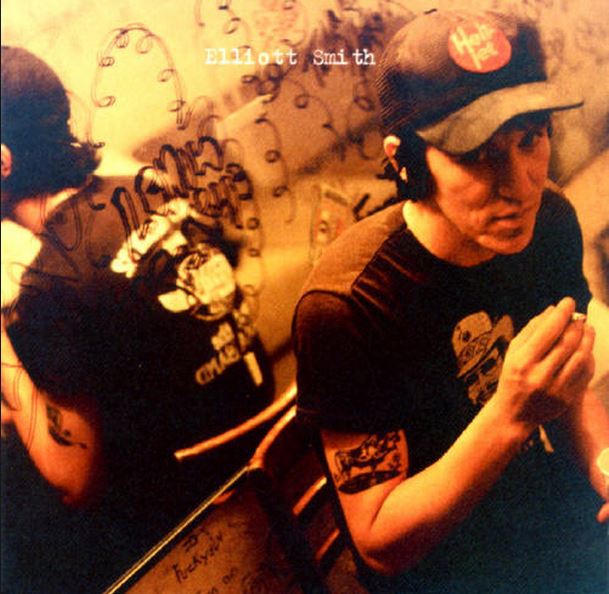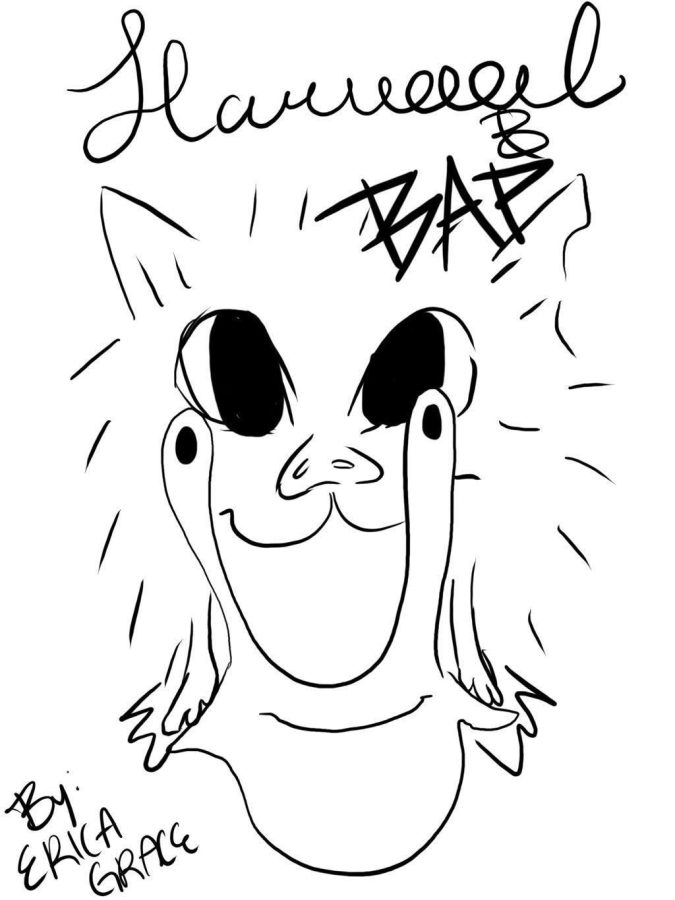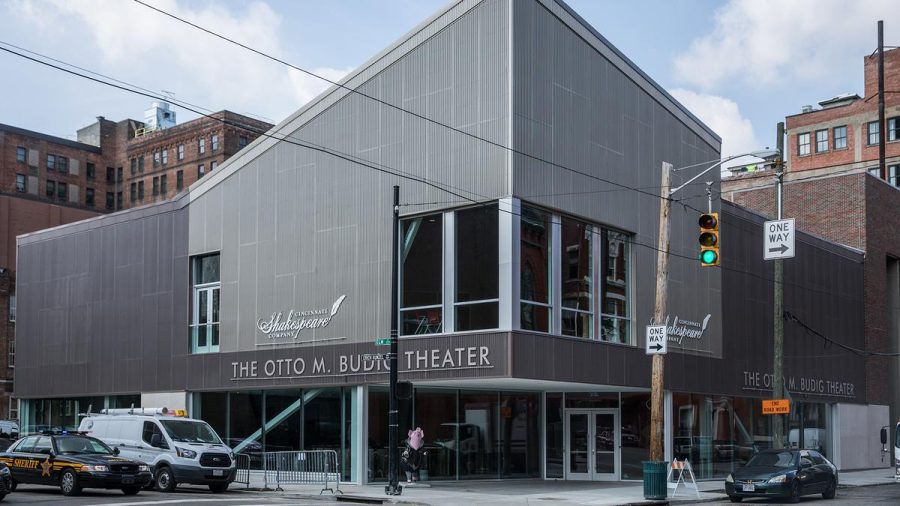By Max Luebbers ’16, Entertainment Editor
I have responsibility now. As Entertainment Editor I feel obligated to appear knowledgeable about a wide variety of music in my writing. So in an effort to expand my musical library I delved deep this summer. I dabbled in lo-fi folk-punk, introspective shoegaze, and some experimental work too. I even dipped my toes into some avant garde classical composition, sampling the likes of Philip Glass and Jonny Greenwood. I thought you might like to hear some of my thoughts on what I found. Many more artists did not make this article, because either: A) I didn’t feel qualified to talk about them in detail or B) I wasn’t sufficiently intrigued to devote a 200 word paragraph to their work. So unfortunately Pop and Hip Hop artists won’t appear in this piece, but without any further ado this is the sound of my summer:
My summer was filled with lo-fi indie groups from the 1990’s. Groups like Luna and Mazzy Star were a good diversion, yet nothing caught my attention like seminal hipster favorite Neutral Milk Hotel. In the Aeroplane over the Sea, the Louisiana group’s second album, is considered one of the great albums of all time, yet upon initial listen I was not convinced. I was intrigued by front man Jeff Magnum’s cryptic lyrics and powerful voice, however I wasn’t sure how critics had come to the conclusion that it was worthy of such universal reverence. After several listens I fell into the trap myself. I was hooked. I was hooked by the solemn tone of the work and its lo-fi, folk-punk sound, but I was also hooked by its simplicity. For this, I realized, Neutral Milk Hotel, should be praised. The album doesn’t stray from straight forward folk chord progressions and its most exotic instrumentation is the occasional musical saw. It is gorgeously simple. That doesn’t mean however it lacks depth though. The melodies catch your ear but the lyrics are what truly hold your attention. Inspired by the Diary of Anne Frank, they are nightmarish and strange, and I was compelled to listen to each song on repeat to crack its meaning. In the Aeroplane over the Sea is truly the purest form of this art. It’s humble, folky, yet endlessly intelligent.
I was lucky to go to the Bunbury music Festival for two days this year. Saturday was mostly a nostalgia trip as I went primarily for one of my childhood bands, The Decembrists. Sunday, however I saw two bands I had relatively little experience with. I was intrigued by The Front Bottoms’, punk, no-care attitude towards their music. Their rattle-y guitars and near spoken vocals are backed up by the incredible lyrical work. Wry storytelling, and ironic humor makes the Front Bottoms one of the funniest acts around. The day was dominated, however, by Manchester Orchestra. I was vaguely was familiar with their most recent album, Cope, released in 2014, but wasn’t sure how diverse their sound could be. Of the songs I had heard, they largely kept to their hard rock sound. And that was mostly the case, yet singer Andy Hull’s incredible vocal performance, along with great guitar tone saves the day. They definitely have a particular sound that they fostered during the recording of Cope. It’s fuzzy, blisteringly loud, and layered, yet all the tracks are surprisingly crisp. People interested by Manchester Orchestra’s work should definitely check out Texas-by-way-of-Sweden band, Alberta Cross.
In an effort to expand my horizons I explored quite a lot of experimental music this summer. Experimental music, especially the kind that’s meant for live performance, isn’t always an easy sell, yet I deliberated and was able to find a few artists that warranted a second listen. I should first preface this by saying that I might have started by going a bit too deep. Early in the summer I discovered the indie LSD trip colloquially known as Caroliner Rainbow. I prefer to liken them to chipmunks playing banjos accompanied by the sound of a devil’s bowel movements. Give it a listen, if only for a laugh, and you’ll understand what I mean. I was feeling pretty down on my self-prescribed regimen of experimental music after this discovery, luckily I stumbled across neo-folk group The Books out of avant garde power house, North Adams, Massachusetts. Their unique blend of American primitive and self-dubbed “audio-collaging” puts them on the leading edge of modern folk. However, not all of their music can necessarily be called music. They’re most widely known for their creative use of found sounds and old audio tape. Many of the Massachusetts duo’s songs predominately consist of sampled sounds used as a percussion with only a hint of simple bass guitar lines. The two members, Paul de Jong and Nick Zammuto, released their final album in 2010, however both have since released solo albums. I personally have only listened to Zammuto’s work and I highly recommended it. His eponymous release is at the same time more electronic as well as more tangible than The Books. Gone is most of the “audio-collaging” that made The Books so unique, and with it has gone the groups near transcendental, natural sound, but that doesn’t mean Zammuto isn’t unique in his own right. He is robotic, raw, and a worthy successor to The Books lineage.
Elliott Smith was by far my favorite discovery this year. He is both one of the most tragic figures in music as well as on of the greatest singer songwriters. Although his career was cut short by his mysterious unsolved murder/suicide at the turn of the millennium, Elliott Smith has become one of the most respected solo acoustic acts to come out of the 20th century. Emulating guitarists like the equally tragic and mesmerizing Nick Drake, while simultaneously taking influence from the growing grunge movement of the early 1990’s, Smith created a unique sound that was reserved yet filled with anger. His debut album Roman Candle is the epitome of lo-fi, with songs predominately recorded as unnamed demos by Smith alone. His relatable stories are much more passionate than standard lo-fi and shoegaze, often portraying down on their luck people that have lost their self-control. It is shockingly dark, vulnerable, and intimate. The intimacy of Roman Candle is doubled by Smith’s soft, acoustic delivery. And, my god what a delivery. The vocal work is layered to great yet haunting effect, and the sheer quickness of his fingers on the guitar is legendary. With a complexity that can only come from being improvised, Smith’s songs change back and forth, switching chords and melodies like lightning, almost faster than your ears can register. His later work becomes more orchestrated, as he acquires a more traditional band, yet his fantastic songwriting remains. He is truly an underrated legend worthy to stand alongside his more respected and famous contemporary Nirvana.
There are many more artists I have neglected to mention. The Pixies’ Kim Deal’s side project, The Breeders, intrigued me, as well as some of Icelandic singer, Björk’s, early jazz work, but I wasn’t able to get in multiple listens this summer. My unfamiliarity with classical music lead me to leave out the fantastic Philip Glass/Ravi Shankar collaboration, Passages. I will also save my review of the promising Montreal Post-Punk band, Ought, for September in anticipation of their second studio record. Even leaving these artists aside I found that exploring such a wide variety genres was really enlightening for me. I found I was able to appreciate even the more obtuse and untraditional music than I was used to if tried it with an open mind. A lot of what I found won’t stick with me, but I was exposed to a few great acts that caught my attention. Elliott Smith for one has quickly become a favorite of mine. Widening your musical tastes is highly educational, and I highly recommend having a gander yourself.






